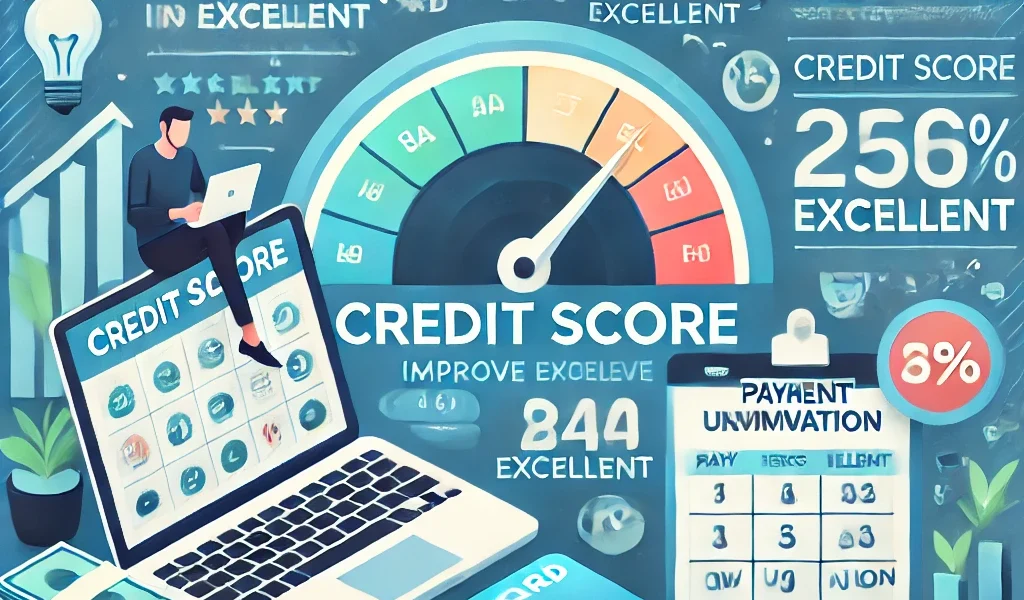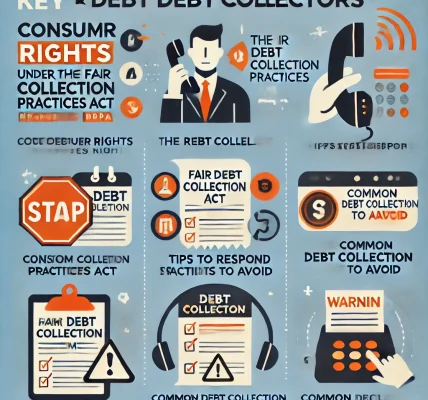Your credit score plays a crucial role in your financial health. A higher credit score can help you secure better loan terms, lower interest rates, and even improve your chances of getting approved for housing or a job. If you are looking for ways to boost your credit score quickly, this DIY guide will provide safe, effective, and legally sound strategies to improve your credit score fast.
Understanding Your Credit Score
Before jumping into improvement strategies, it’s essential to understand what affects your credit score. The primary factors influencing your score are:
- Payment History (35%) – On-time payments boost your score, while late payments hurt it.
- Credit Utilization (30%) – The percentage of your available credit that you’re using.
- Length of Credit History (15%) – The age of your oldest and newest accounts.
- New Credit Inquiries (10%) – Applying for multiple loans or credit cards in a short period can lower your score.
- Credit Mix (10%) – A diverse mix of credit accounts (credit cards, loans, etc.) can help.
Proven DIY Strategies to Improve Your Credit Score Fast
1. Check Your Credit Report for Errors
Your first step should be to get a copy of your credit report from major credit bureaus (Experian, Equifax, and TransUnion). Look for errors such as:
- Incorrect late payments
- Accounts that don’t belong to you
- Inaccurate balances
- Identity theft-related discrepancies
✅ Action Step: If you find errors, dispute them immediately with the credit bureau. Correcting mistakes can significantly boost your score.
2. Pay Your Bills on Time – The Biggest Factor
Late or missed payments severely impact your credit score. To avoid late payments:
- Set up automatic payments for credit cards and loans.
- Use calendar reminders to track due dates.
✅ Action Step: If you have missed payments, contact your lender and ask for a “goodwill adjustment” to remove the late mark, especially if you’ve been a consistent payer.
3. Reduce Your Credit Utilization Ratio
A high credit utilization ratio negatively impacts your score. To keep it low:
- Keep your credit usage below 30% of your total credit limit.
- Pay down existing balances.
- Request a credit limit increase from your card issuer (without applying for a new card).
✅ Action Step: If your credit card limit is $10,000, aim to keep your balance below $3,000 at all times.
4. Become an Authorized User on a Responsible Person’s Account
If you have a family member or trusted friend with a strong credit history, ask them to add you as an authorized user on their credit card. Their positive credit behavior can help improve your score.
✅ Action Step: Ensure the primary cardholder maintains low utilization and makes on-time payments.
5. Keep Old Credit Accounts Open
The length of your credit history matters. Closing old accounts can shorten your credit history and increase your utilization ratio.
✅ Action Step: If you don’t use an old card often, make small purchases occasionally to keep it active.
6. Diversify Your Credit Mix
Lenders prefer borrowers with a diverse credit portfolio, including credit cards, installment loans, and retail accounts.
✅ Action Step: If you only have credit cards, consider adding a small installment loan (like a credit builder loan) to enhance your credit mix.
7. Limit New Credit Applications
Each time you apply for credit, a hard inquiry is recorded, which can temporarily lower your score.
✅ Action Step: Apply for new credit only when necessary, and avoid multiple applications in a short period.
8. Use a Secured Credit Card if You Have a Low or No Credit Score
A secured credit card requires a deposit and can help rebuild credit. Use it responsibly by making small purchases and paying them off in full each month.
✅ Action Step: Apply for a secured card from a reputable lender and use it to establish positive payment history.
9. Set Up Experian Boost or UltraFICO
Some services allow you to add utility and streaming bill payments to your credit report, potentially increasing your score.
✅ Action Step: Consider signing up for Experian Boost or UltraFICO to add more positive payment history.
10. Negotiate and Settle Old Debts Smartly
If you have outstanding collections or charge-offs, settling them responsibly can help improve your credit score.
✅ Action Step: When settling old debts, ask for a “pay-for-delete” agreement (in writing) before making a payment. This isn’t always guaranteed but is worth trying.
How Long Does It Take to See Results?
- Correcting credit report errors: 30–60 days
- Paying down credit balances: Within a month
- Consistently paying bills on time: 3–6 months
- Using Experian Boost: Immediate results possible
Final Thoughts: Stay Consistent and Be Patient
Improving your credit score fast is possible with the right strategies and discipline. While some changes can yield quick results, lasting credit health requires ongoing responsible financial behavior.
Key Takeaways:
- Monitor your credit report regularly.
- Make on-time payments a habit.
- Keep credit utilization low.
- Limit new credit inquiries.
- Use credit responsibly for long-term success.




